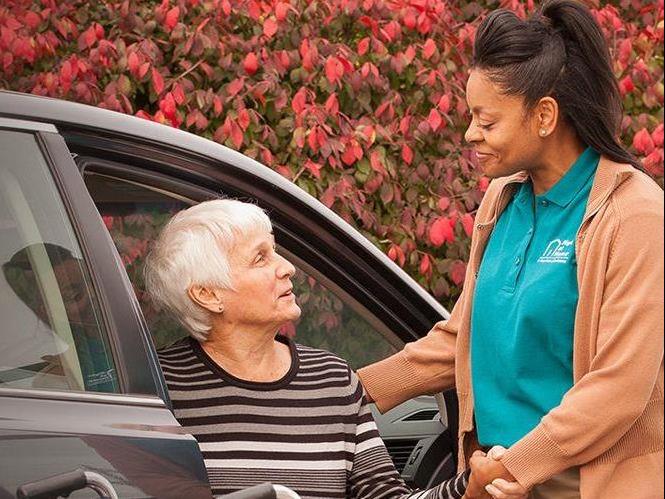

Right at Home Bux/Philly Celebrates Our October Family Pizza Night Winner!
October Family Pizza Night Winner!


Congratulations to Hope Idowu, winner of our October Family Pizza Night! Pizza was delivered to Hope and her family as a thank you for all she does for Right at Home and our clients.
What to do When Holiday Visits Expose New Needs
Thanksgiving is right around the corner, and for those who live far from their parents, the holidays are often a happy time of family reunions and catching up. But as loved ones age, this can also be a time of unpleasant surprises for those who discover that their aging loved one is showing signs of decline.
“Aging adults that are facing new limitations often try to avoid drawing attention to themselves. It’s not uncommon for an out-of-town relative to be unaware of the changes their loved ones are facing. Holiday family gatherings can be a good time to assess how your loved one is doing,” said Denise Bernstein, Owner of Right at Home Bux/Philly.
But even if a loved one is experiencing new changes or challenges with age, are these changes serious? There are some key signs to look for that a loved one may benefit from in-home assistance.
Appearance and Hygiene
First, make sure that your loved one is continuing to look after his personal appearance and hygiene as well as he used to. Warning signs could include wearing the same clothes over and over or neglecting to brush his teeth. If he is taking medications, watch to make sure he remembers when to take them, and that he knows what each is for. If he is not eating properly, he may be losing weight.
If visiting with your loved one at his home, you should also look for signs of neglect in the house. If the home looks that it is not getting its usual care, it could be that regular, simple maintenance chores such as dusting are not being performed. Keep an eye out for piles of unpaid—or even unopened—bills. Avoiding tasks such as this could be a sign that once manageable tasks have become overwhelming for your loved one. Keep a lookout for burned pots and pans, as well as food that is past its expiration date or molding.
Additional Signs of a Problem With Your Senior Loved One
Additional signs of a problem may be that your loved one is not taking proper care of a pet, is avoiding steps or having difficulty with them or has limited his contact with the outside world. If you see these signs in your loved one, it is time to speak up. You may not want to breach the subject during the holidays, but don’t wait too long.
“Planning for a loved one’s future needs as they age can be difficult and emotional for everyone involved. But it’s an important conversation to have to ensure those you care about get the help and care they need in the way they want it. The earlier you start the conversation, the easier transitions will be when they’re needed,” Bernstein said.
Preparing to Have That Conversation
Prepare what you want to say to your loved one beforehand, and focus on “I” statements that express your concern to help him maintain the life he desires as he ages. Bring other family members into the discussion during the early stages so everyone is on the same page. This can spare you and your loved ones much discord later. If you expect it to be a difficult conversation, some experts recommend introducing the topic briefly and then agreeing on a later time to discuss in more detail after everyone has had time to reflect. Another option to consider is bringing in a mediator or geriatric consultant to weigh in and keep the conversation peaceful.
Options for Seniors in Need of Assistance
There are many options available for seniors in need of assistance. Sometimes, the assistance of a family or friend caregiver is enough. Other times this is not practical, particularly if family members live too far away or are already over committed. Other single-service care options can help to supplement or address a specific need, such as a meal delivery service or an adult daycare. Your local social services office may offer some of these services; contact them to find out. If more comprehensive care is needed, there are assisted living facilities and nursing homes—or, if your loved one wishes to stay at home, you will want to consider an in-home care service such as Right at Home.
“Ultimately, no single isolated sign necessarily means your loved one is in trouble. After spending time with your loved one, take a gut check. Sometimes you can feel a change in a person even if you can’t articulate it. Trust yourself. And in the meantime, enjoy your time together and celebrate,” Bernstein said.



